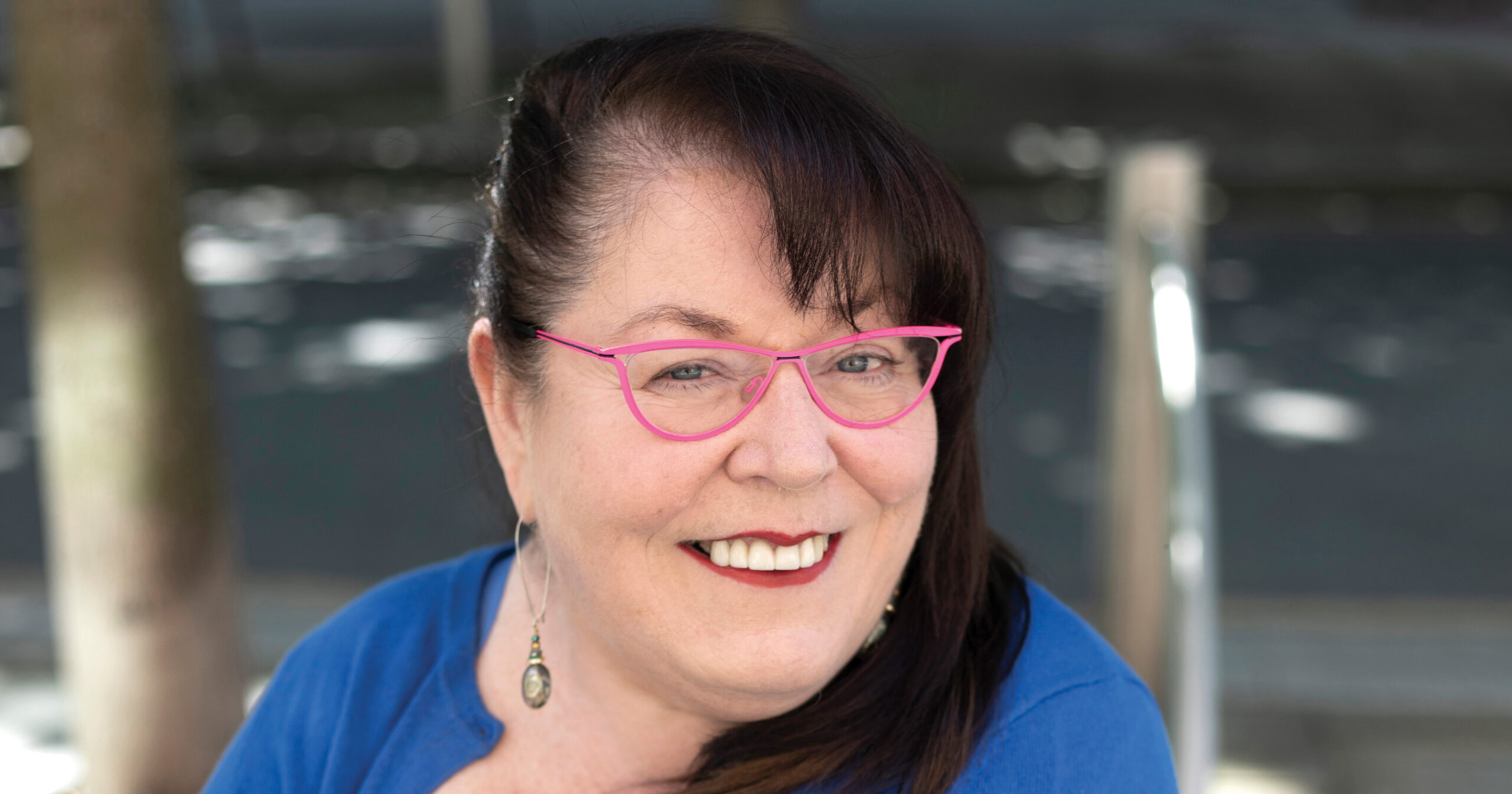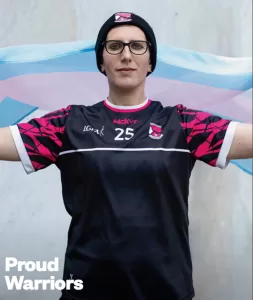As we celebrate Pride Month across this island, we must confront the harsh reality that our community faces a rising tide of disinformation, scapegoating and hate. It’s time again for us to channel our collective pain and anger into action for social justice. As part of the #StrongerTogether initiative in collaboration with the Rowan Trust and the Hope and Courage collective, GCN interviewed Traveller activist Rosaleen McDonagh, who shared her thoughts on the importance of intersectionality and solidarity.
Rosaleen McDonagh isn’t an activist out of desire, but out of necessity. “I’m a Traveller woman with a disability,” she explains, emphasising the importance of intersectionality. “As a Traveller, you’ve no choice in this country other than to be political about your rights.”
In the 1990s, Rosaleen worked for Pavee Point Traveller and Roma Centre, an NGO comprised of Travellers, Roma and Activists working innovatively for social justice, greater solidarity and intersectionality, development, equality and human rights. Today she sits on the board of management. Reflecting on life in Ireland prior to the recognition of Travellers as an ethnic group, Rosaleen recalls ostracisation.
“When I was growing up, Travellers were treated very badly. And when that happens, you have no other option than just respond”. Years later, little has changed for the Irish Traveller Community, despite unyielding activism and calls for solidarity and more intersectionality.
“There’s a facade that we’re all doing well,” Rosaleen says. “Travellers are still on the roadside. Travellers are still not on a par with their settled counterparts in education. There has been some change, but nothing very substantial.”
Rosaleen points to recent strides made in Ireland – the abortion and same-sex marriage referenda – but recognises that Ireland is still a dangerous place for minorities. “It looks as if there’s a change, but we still see the racism towards migrants, we still see the homophobia.”
This year has seen an escalation of far-right violence in Ireland, though Rosaleen suspects the current wave reflects a targeted campaign of hate that has been building for a long time.
“There was always conservatism in Ireland, and with conservatism, there’s racism, there’s homophobia. We assumed the far-right meant outside Ireland, but I suspect that it’s been here a long time. It’s not a stretch to say they were part of the anti-gay marriage campaign; they were part of the No campaign for the Eighth Amendment. They have always been here, and I would have associated them with the church. It’s only in recent years that I associated them with global politics, and I connect them with a much larger cohort.
“When I was growing up, the far-right was associated with racism in England and an anti-immigrant movement in England. I would never have thought they were here in Ireland. But they are. They’re part of the mainstream, and they’re considered respectable.”
For Rosaleen, the current climate jeopardises the safety of many and is chillingly reminiscent of some of the darkest moments of human history. To those unaware of what’s at stake, Rosaleen recalls the build-up to Nazi Germany. “They came for the Roma, they came for the Travellers, they came for trans people, they came for disabled people, and they came for Jewish people. These far-right groups are coming for us all. We’re all under siege, and we have to mind each other in the trenches.”
Tackling this violence with solidarity is vital, Rosaleen says. “Intersectionality is really important. There are gay Travellers. There are trans Travellers. We don’t live on our own. They’re part of our community as well.”
Right now, Rosaleen is particularly concerned about transphobia in the UK and the USA seeping into Ireland. “At the moment, there’s a really dangerous, conservative, transphobic rhetoric, and they’re taking books about sexuality and race out of libraries, and we need to be really careful that we get the balance between freedom of expression and our laws around hate speech. I do think we need to pull together and support each other. It’s not my job at the moment to talk about Travellers’ rights, it’s my job to talk about gay rights and trans rights. I feel like that’s my job in the current climate.”
At the intersection of our communities there is power, and this is what will be crucial in countering far-right violence and oppression. For instance, Rosaleen recalls her friendship with members of the LGBTQ+ community, and how these friendships strengthened her resolve in the face of racism. She mentions, in particular, her close friends Suzy Byrne and Michael Dillon, and Mikey Power, the son she never had.
“All these people have protected me from racism and ableism,” she says. “I love them for all they’ve given me and the journeys we’ve shared. That’s the thing. We don’t live in silos. When we’re under threat, our lives bump off each other because we all have the same enemy and we have to protect each other. At the moment, we have to build support in numbers and spirit so we can outnumber the far right.
This story originally appeared in GCN’s Pride issue 378, as part of an ongoing feature on solidarity that was created in cooperation with the Rowan Trust and the Hope and Courage Collective. Read the full issue here.
Want to be featured in this special campaign? Share a message of solidarity using #StrongerTogether, tagging GCN or email [email protected].
© 2023 GCN (Gay Community News). All rights reserved.
This article was published in the print edition Issue No. 378 (June 1, 2023). Click here to read it now.
Support GCN
GCN is a free, vital resource for Ireland’s LGBTQ+ community since 1988.
GCN is a trading name of National LGBT Federation CLG, a registered charity - Charity Number: 20034580.
GCN relies on the generous support of the community and allies to sustain the crucial work that we do. Producing GCN is costly, and, in an industry which has been hugely impacted by rising costs, we need your support to help sustain and grow this vital resource.
Supporting GCN for as little as €1.99 per month will help us continue our work as Ireland’s free, independent LGBTQ+ media.

